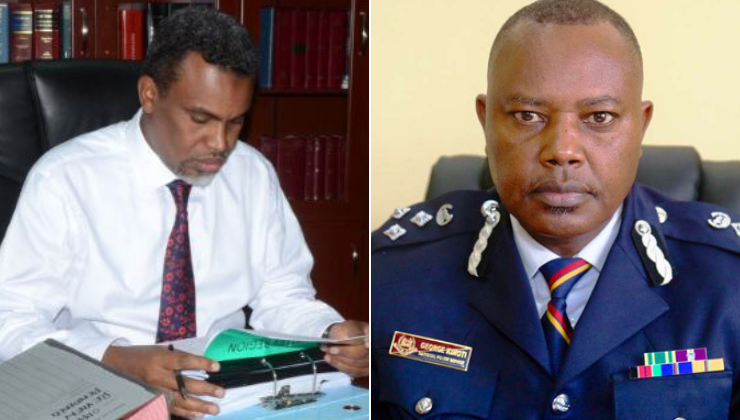The mysterious death of university student and blogger Albert Ojwang in police custody has triggered a wave of public outrage, prompting Interior Cabinet Secretary Kipchumba Murkomen to announce major reforms aimed at cleaning up Kenya’s police service.
In a bold move to restore public trust and address growing concerns about police abuse and cover-ups, Murkomen revealed that all 1,209 police stations across the country will be required to install CCTV cameras within two years.
He also announced the digitization of Occurrence Books (OBs), aiming to improve transparency and accountability in police operations.

Murkomen Targets Police CCTV Use & OB System in Accountability Overhaul
In a press briefing on Monday, Murkomen stated that each police station must install high-quality CCTV systems with real-time monitoring accessible by the Officer Commanding Station (OCS). These systems must have secure, backed-up footage that will assist in investigations and ensure that no misconduct goes unpunished.
“Every police station will have functional CCTV surveillance and live monitoring. This footage will be securely backed up and available for scrutiny. We cannot allow what happened to Ojwang to happen again,” Murkomen said.
The directive is part of an urgent response to the nationwide uproar following Ojwang’s death. Allegations have surfaced that senior officers attempted to delete or tamper with CCTV footage, fueling suspicions of a cover-up. Murkomen announced that Parliament will soon enact a law criminalising any deletion or tampering of CCTV evidence from police stations.
In addition to surveillance, Murkomen introduced strict new timelines for reporting abuse. “All cases of assault, harassment, or misconduct within police stations must be reported within one hour. No delays. No excuses,” he warned.
The CS also ordered police stations to undergo independent audits, which will evaluate performance, compliance, and community engagement. “These audits will hold police accountable and reward stations that perform well,” he said.
Police CCTV Use & OB Reforms Unveiled by Murkomen After Outrage Over Ojwang’s Death
Murkomen’s second major reform involves digitising the Occurrence Book (OB), the primary log used to record all police activities and incidents. Within one year, all OBs across Kenya will be fully digital.
“This will end tampering. Every report will be trackable, time-stamped, and available for audit,” said Murkomen. “No one will be able to change or erase what was filed.”
Digitisation of OBs will ensure a permanent, transparent record of interactions between police and the public. It also aims to improve case follow-up and deter corruption, a long-standing issue in the Kenyan police service.
The system will be integrated with national databases, enabling faster responses and better coordination across stations. The reform is expected to be costly, but Murkomen urged Parliament and the Treasury to release the required funds, noting that training has already been severely affected by budget cuts.
Training, Audits, and Pressure on DIG Lagat to Step Down
To support the reform rollout, Murkomen announced the start of continuous development training for police officers. Priority will be given to OCSs, who will undergo constitutional and professional conduct training.
“Our officers must understand rights-based policing, constitutional limits, and their duty to serve with dignity. This training will start immediately,” said Murkomen.
The Interior Ministry will also partner with civil groups, religious leaders, and community organizations to improve relations between police and citizens. Officers will be evaluated regularly, with non-compliant ones facing disciplinary action and high performers receiving public recognition.
However, critics argue that no reform can succeed while Deputy Inspector General of Police Eliud Lagat remains in office. Pressure continues to mount for Murkomen to direct Lagat to step aside amid the ongoing investigation into Ojwang’s death.
Despite public outcry, Murkomen maintains that the law must be followed. “The process must be legal. I cannot act outside the law, no matter the emotions,” he stated.
Meanwhile, activists and human rights groups have called for mass protests scheduled for Tuesday. Demonstrators are expected to march in Nairobi and other towns demanding Lagat’s resignation, the arrest of those involved in Ojwang’s death, and immediate implementation of Murkomen’s reforms.










































